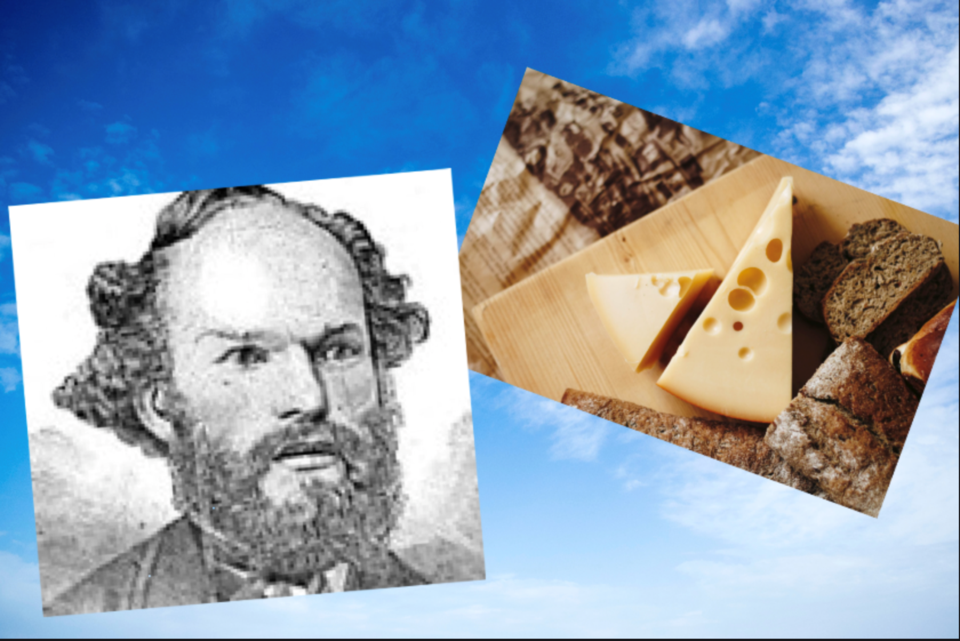(A version of this article was first published as an ‘Ode to St. Catharines’, in the Downtowner, Vol.5, no. 2 February/March 1989. Later versions were published in the Historical Society of St. Catharines newsletter and a more involved genealogical version in the Ontario Genealogical Society Journal)
In the mid-19 th century, Niagara was graced by the presence of an extraordinary citizen whose name has since become synonymous with doggerel, or rather wretched poetry. The kind of florid Victorian poetry was practised by many, but James McIntyre became a master. His works and that of four other Canadian poets of that era have been immortalized in W. A. Deacon’s book ‘The Four James’.
All four shared the same given name. James McIntyre was born in 1828 in Scotland and emigrated with his parents, Peter and Primrose McIntyre and extended family to St. Catharines and Thorold in 1841. In 1850 he opened a business as a cabinetmaker and undertaker in Thorold. Cousins of James were in the same business in downtown St. Catharines, variously known as McIntyre’s Furniture and Undertaking on St. Paul Street.
Until the mid-2010’s another funeral home, Passfields Mortuary worked from that same building on the SE corner of St. Paul and Carlyle. It had formerly been, but the city took down the building for the First Performing Arts Centre. One cousin of James became prominent in his own right by becoming St. Catharines mayor in the latter part of the 19th century.
But none of the McIntyre’s shared the zeal for literature that infused James’ life. He penned poetry on anything that came to mind and is immortalized for his best known bad poem Ode to the Mammoth Cheese which he wrote about the Oxford County dairy industry. He may have moved to that county, but he is one of Niagara’s unsung, or as I have labelled him, unstrung heroes. He plied his trade in Ingersoll and penned his poetry at off times. His neighbour in Ingersoll, James Harris, created a legendary-sized piece of cheese which went on show at exhibitions.
After Harris moulded the Big Cheese, James McIntyre wrote:
We have seen thee, Queen of cheese
Laying quietly at your ease
Gently fanned by evening breeze, Thy fair form no flies dare seize
He has become known as The Cheese Poet. When he learned that the cheese was going to France for an exhibition, he added these lines:
May you not receive a sear as
We have heard that Mr. Harris Intends to send you off as far as
The great World Show at Paris.
Doesn’t scan? Consider then McIntyre’s only known offering to our own Niagara –St. Catharines and Thorold. He penned the following poem which he read at the Welland House at an Oddfellows Grand Lodge banquet:
St. Catharines famed for her mineral waters
And for the beauty of her daughters,
For some do worship at the shrines
Of the fair St. Catharines.
St. Catharines your greatness you inherit
From the genius of a Merritt
You still would be a village dreary
But for this canal from Lake Erie
But on its bosom there doth float
Full many a ship and steamboat,
Brings world’s commerce to your doors
And many gifts on you it pours.
Among its many great rewards It gives you dry docks and shipyard
To drive your mills great waterpower It doth give you as a dower.
Since we above did lines compose,
Through new canal vast stream it flows,
The lock gates at the hill of Thorold Cannot be equalled in the world.
Well what can one say to that? Some would say that this ‘poetry’ rivals the world’s famous bad poet, Scotland’s William McGonnagall. I, for one, am glad to have found at least one of McIntyre’s poems which ostensibly celebrates our cities.
Gail Benjafield is a librarian and local historian who proudly owns a copy of The Four James. She once read out this latter poem to a Niagara Canada’s Day celebration. It was met with astonishment and some guffaws.



